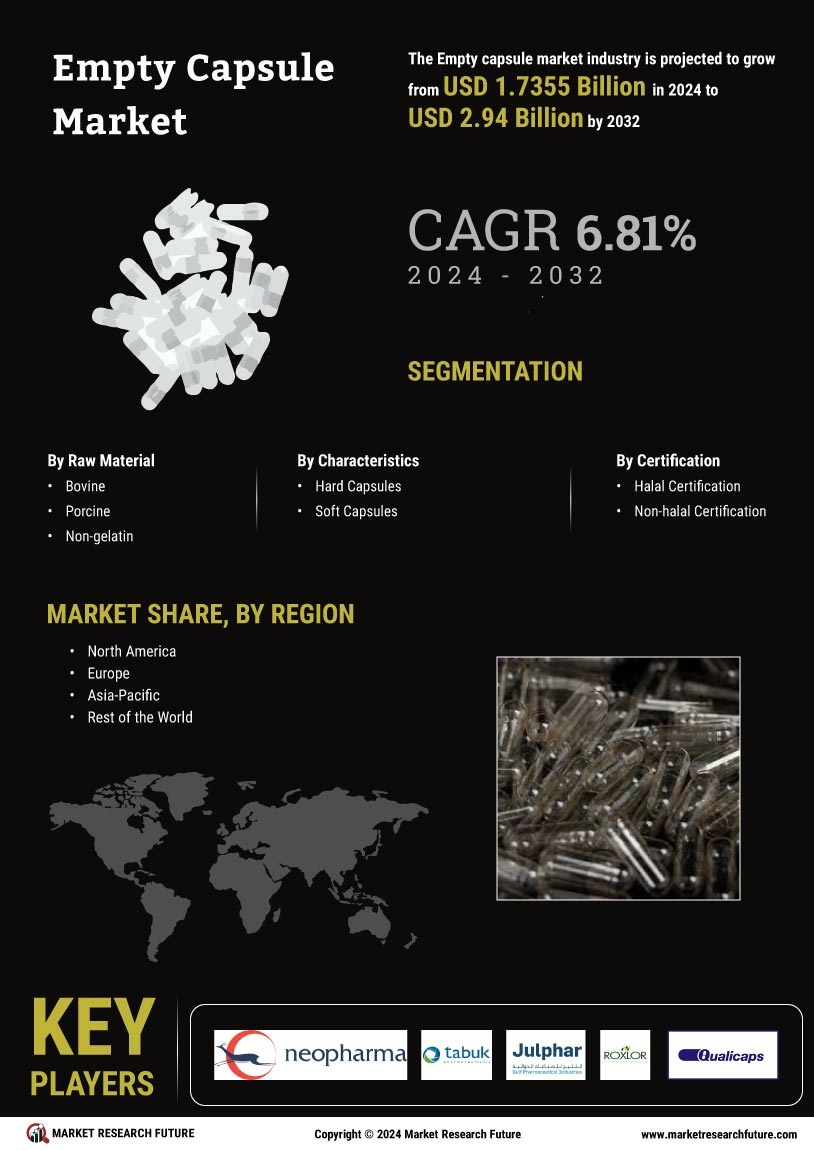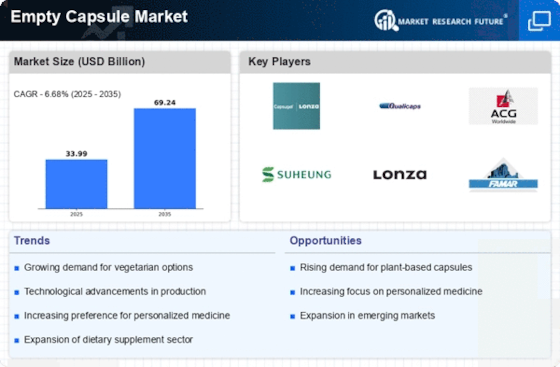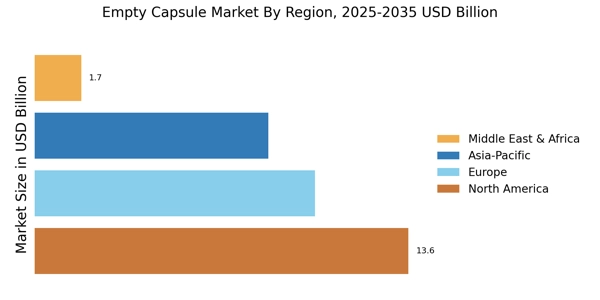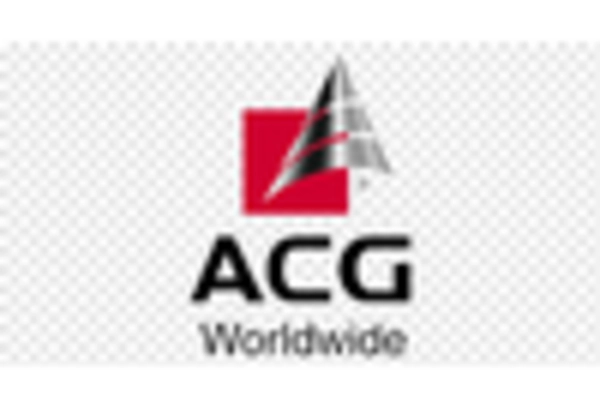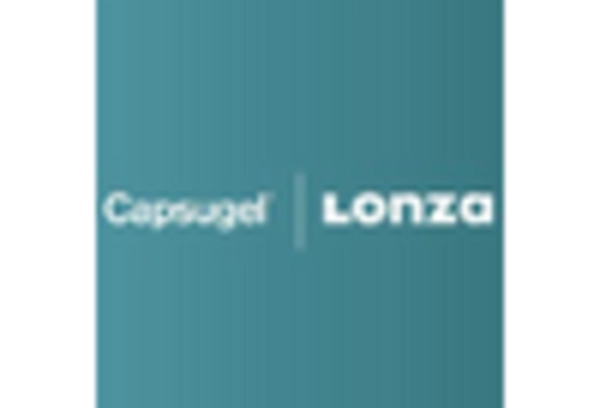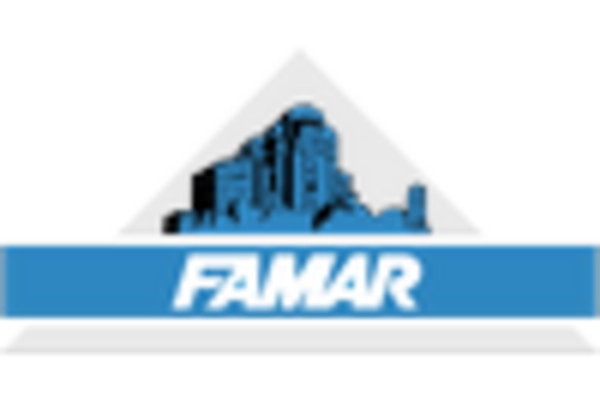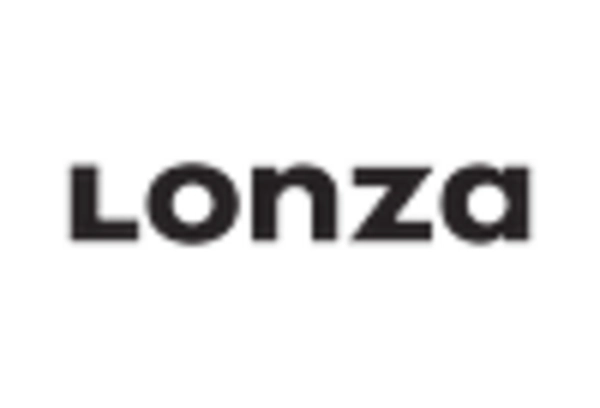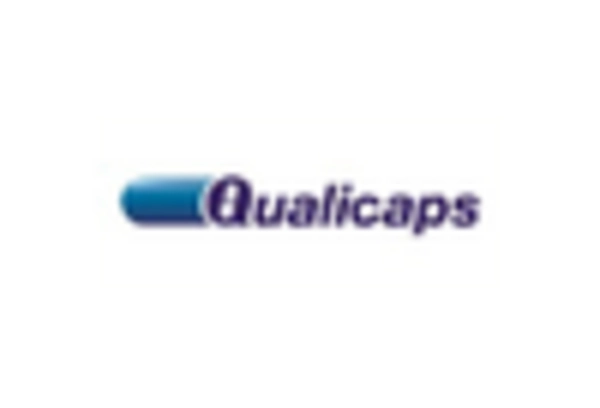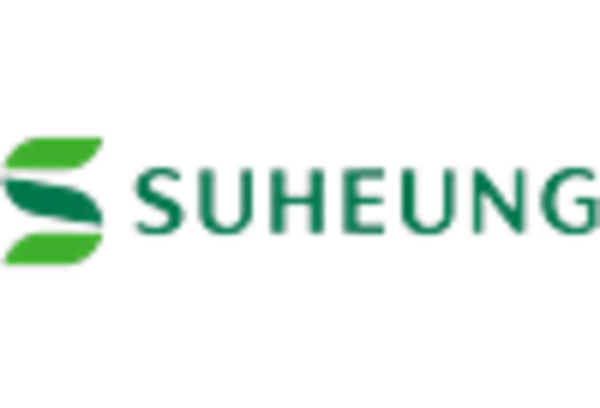Focus on Health and Wellness Trends
The Empty Capsule Market is significantly impacted by the increasing focus on health and wellness trends among consumers. As individuals prioritize their health, there is a marked shift towards preventive healthcare and self-medication. This trend is reflected in the growing sales of health supplements and nutraceuticals, which are often delivered in capsule form. In 2025, the health and wellness market is projected to reach approximately 4 trillion USD, indicating a robust growth trajectory. The Empty Capsule Market stands to gain from this trend, as manufacturers align their products with the health-oriented preferences of consumers, thereby enhancing their market presence.
Expansion of Pharmaceutical Applications
The Empty Capsule Market is witnessing an expansion in pharmaceutical applications, particularly in the development of innovative drug delivery systems. As the pharmaceutical sector continues to evolve, the need for effective and efficient drug formulations becomes paramount. In 2025, the pharmaceutical industry is expected to surpass 1.5 trillion USD, with a growing emphasis on personalized medicine and targeted therapies. This shift necessitates the use of empty capsules that can accommodate various formulations, including powders and granules. Consequently, the Empty Capsule Market is likely to see increased investments and advancements in capsule technology to cater to these emerging pharmaceutical needs.
Increasing Demand for Dietary Supplements
The Empty Capsule Market experiences a notable surge in demand for dietary supplements, driven by a growing health-conscious population. As consumers increasingly seek natural and organic products, the preference for capsules over traditional tablets is evident. In 2025, the dietary supplement sector is projected to reach a valuation of approximately 200 billion USD, with a significant portion attributed to capsule-based formulations. This trend indicates a shift towards convenience and ease of consumption, which aligns with the evolving preferences of consumers. The Empty Capsule Market is thus positioned to benefit from this increasing demand, as manufacturers adapt to meet the needs of health-oriented consumers.
Technological Advancements in Capsule Production
Technological advancements play a crucial role in shaping the Empty Capsule Market. Innovations in capsule manufacturing processes, such as the introduction of advanced encapsulation techniques and the use of new materials, enhance the quality and functionality of capsules. In 2025, the market is expected to benefit from these advancements, as they allow for the production of capsules that are more efficient, stable, and tailored to specific applications. This evolution in technology not only improves the overall performance of capsules but also supports the growing demand for customized solutions in both dietary supplements and pharmaceuticals, thereby driving growth within the Empty Capsule Market.
Rising Popularity of Vegan and Vegetarian Products
The Empty Capsule Market is significantly influenced by the rising popularity of vegan and vegetarian products. As consumers become more aware of dietary choices and their impact on health and the environment, the demand for plant-based capsules is on the rise. In 2025, the market for vegan capsules is projected to grow at a compound annual growth rate of over 10%. This trend reflects a broader movement towards sustainable and ethical consumption, prompting manufacturers within the Empty Capsule Market to innovate and expand their offerings to include plant-derived materials. Such developments not only cater to consumer preferences but also align with sustainability goals.
